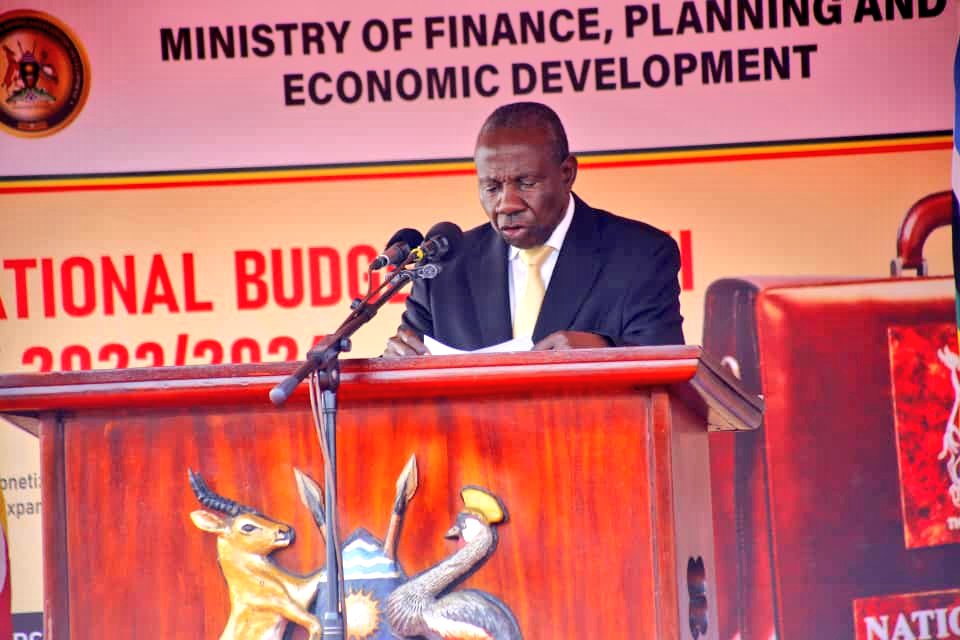Business
Budget Reading; Uganda aims for 6% economic growth in 2023/2024 Financial Year
The minister of finance, planning and economic development Hon Matia Kasaija has Thursday read the national budget 2023/2024, highlighting the economic growth strategy and budget priorities for the next financial year.
In his budget speech, the minister noted that the strategy aims to drive economic growth and ensure debt sustainability through increased domestic revenue mobilization and reduced non-concessional borrowing.
One of the key initiatives to be implemented is the Parish Development Model and Emyooga, aimed at promoting grassroots development. The government will also focus on the effective implementation of various export strategies to enhance access to global and regional markets.
To support the private sector, the government plans to reduce the cost of doing business by investing in infrastructure projects such as the construction of the Standard Gauge Railway and the rehabilitation of the Meter Gauge Railway.
Additionally, small-scale solar-powered irrigation schemes will be developed to address climate change and ensure food security. Maintenance of roads, investments in industrial parks, and energy transmission lines are also part of the strategy.
The budget read today, prioritizes providing affordable credit to micro and small enterprises, low-income groups, and medium to large enterprises through initiatives like the Small Business Recovery Fund, Emyooga, and the Uganda Development Bank.
Hon Kasaija further said that the government aims to enhance agricultural production and productivity by providing quality seedlings, pesticides, fertilizers, storage, and marketing in the agro-industrialization value chain.
The rapid development of the oil and gas sector, including the construction of the East African Crude Oil Pipeline and the National Oil Refinery, is another crucial objective.
The government also plans to expand the skilled labour force to meet the demands of a diversified economy and mitigate the negative impacts of climate change. Implementation of the Greater Kampala Metropolitan Infrastructure Development Master Plan and ensuring peace and security are fundamental aspects of the strategy.
As a result of these interventions, Uganda’s economy is projected to grow at 6% in the financial year 2023/2024, with an average growth rate of 6.5-7% per year over the next five years.
According to Hon Kasaija, the budget priorities for the next financial year focus on urgent completion of key public investments, enhanced revenue mobilization, and collections, full-scale operationalization of the Parish Development Model, and improved government efficiency and effectiveness.
The key areas of funding include boosting household incomes and micro enterprises, commercializing agriculture, supporting private sector growth, investing in the people of Uganda, improving infrastructure, and expediting strategic interventions in innovation, research and development, and the minerals, oil, and gas industry.
To ensure the successful implementation of these strategic priorities, the government emphasizes the importance of peace, security, good governance, and the rule of law as the foundation for economic activities.





































